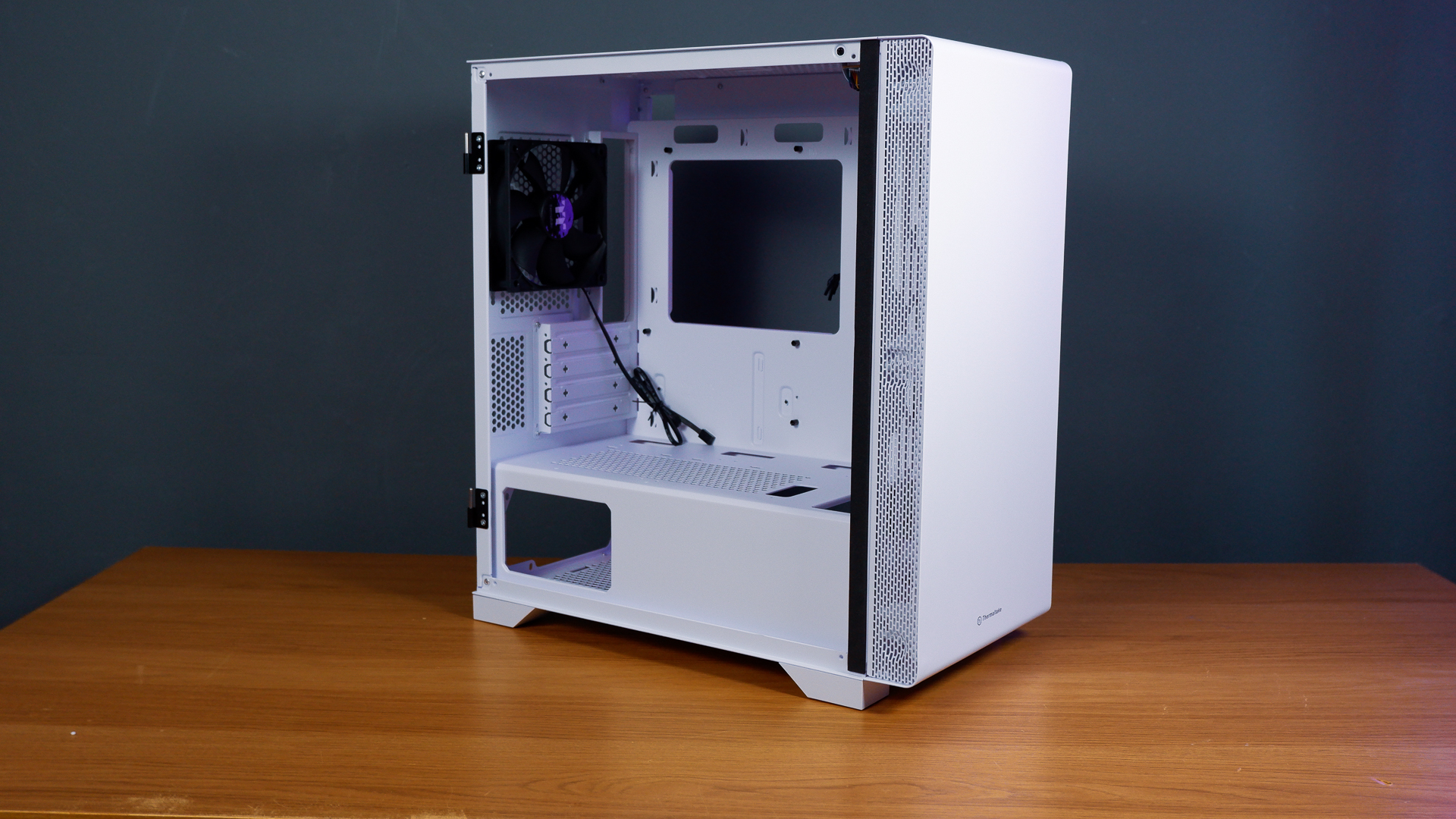'There's so much uncertainty': Indie devs are hurting after GDC's sudden cancellation
How developers are trying to salvage what could have been the most important week of the year.
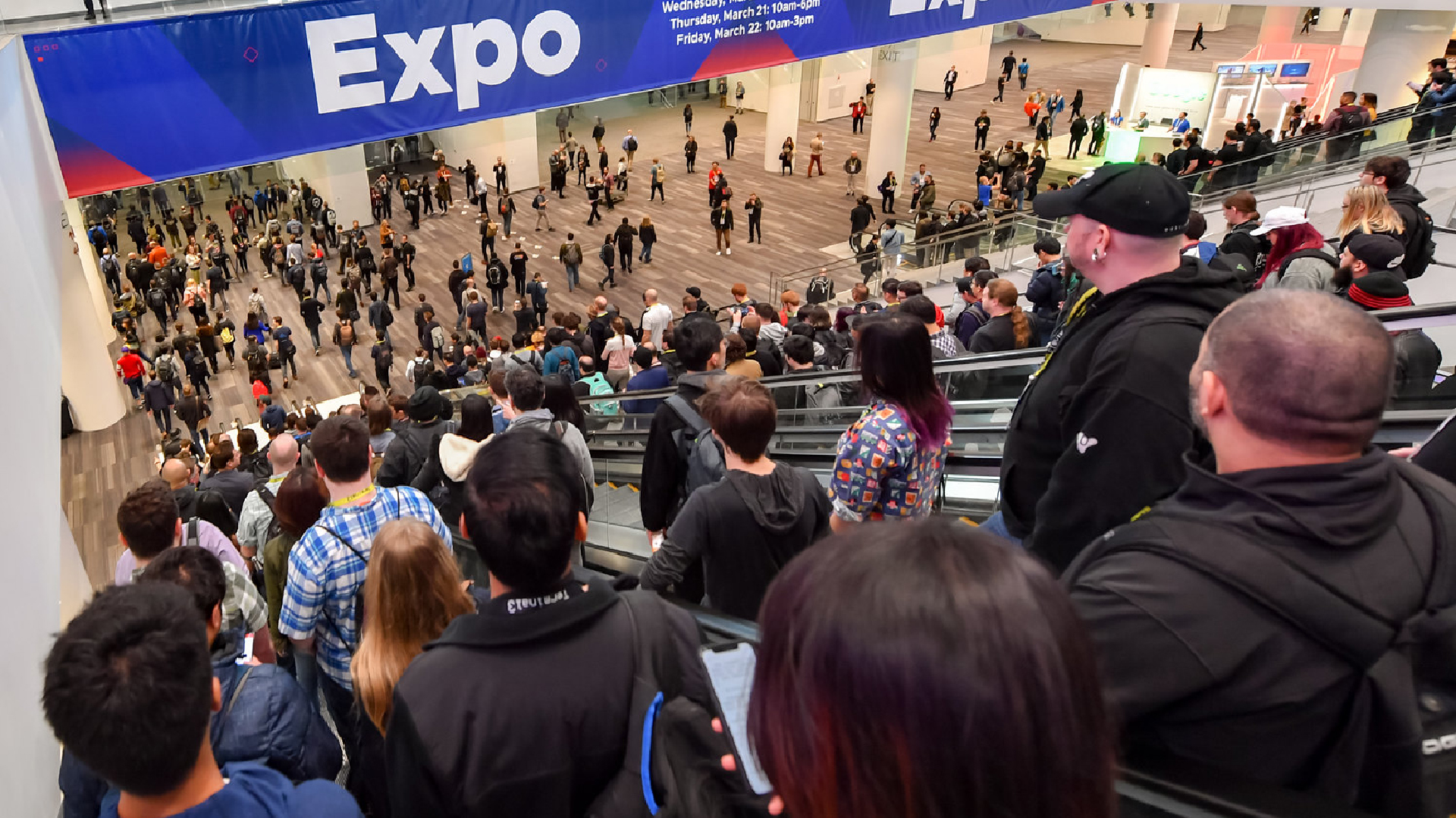
When Game Developers Conference 2020 was cancelled last week, millions of dollars and countless hours of labor went up in smoke. Exhibitor booths, marketing materials, gear rentals, admission, flights, accomodations in one of the United States' most expensive cities, travel visas—the list of expenses just to participate in gaming's largest industry-facing event goes on and on. And though the aftershock of GDC's unexpected cancellation is felt across the entire games industry, few are feeling it worse than independent developers.
For many of them, GDC is one of the most important weeks of their lives. It's an opportunity to pitch major publishers on their projects and hopefully secure a publishing deal, guaranteeing a small measure of financial security. Others use the week to network, sharing knowledge and building contacts that'll open doors to new opportunities, jobs, or collaborations.
GDC is usually an exciting and challenging week, but what's common to each of the dozen developers I've spoken to over the past few days is that attending is also a significant investment. And now that GDC is no longer happening on March 16, many are stuck holding the bill without anything to show for it.
The cost of business
The writing was on the wall last week when GDC's largest exhibitors started cancelling plans to attend amid growing concern over the Covid-19 (generally called the coronavirus) epidemic. The city of San Francisco, where GDC is held, announced a pre-emptive state of emergency to prepare in the event of a widespread local coronavirus outbreak, and in the days that followed major companies like Facebook, Microsoft, and Epic Games dropped out.
I think people may underestimate the amount of stress that puts on a small studio.
Brendan Drain
For Brendan Drain and his team at Brain and Nerd, a six-person studio in Northern Ireland, seeing GDC slowly implode was anxiety-inducing. "We had spent weeks setting up meetings," he told me over Discord. "So it was pretty stressful seeing all those companies had started to pull out."
Brain and Nerd has two games in development and a portfolio of prototypes it was hoping to show potential publishers. For the past year, the studio has survived partly due to an government-funded incubation program run by Northern Ireland Screen, which gave Brain and Nerd the resources to scale up development, hire more developers, and attend all-important industry events like GDC. But that funding won't last forever, and Drain and his team are in a critical transition period. GDC was an event that Drain describes as a "make or break" moment.
Disclosure: Brendain Drain is also a freelance journalist and wrote our review of EVE Online in 2018.
Keep up to date with the most important stories and the best deals, as picked by the PC Gamer team.
Though their trip was partially covered by Northern Ireland Screen, Drain and another coworker spent over $2,000 for flights and hotels. The organizers behind GDC are refunding costs directly related to the conference, like admission fees and hotel rooms booked through a special GDC promotion. That's just a small portion of the potential cost, however. Drain, like most of the developers I've spoken with, didn't realize their travel insurance didn't cover event cancellation.
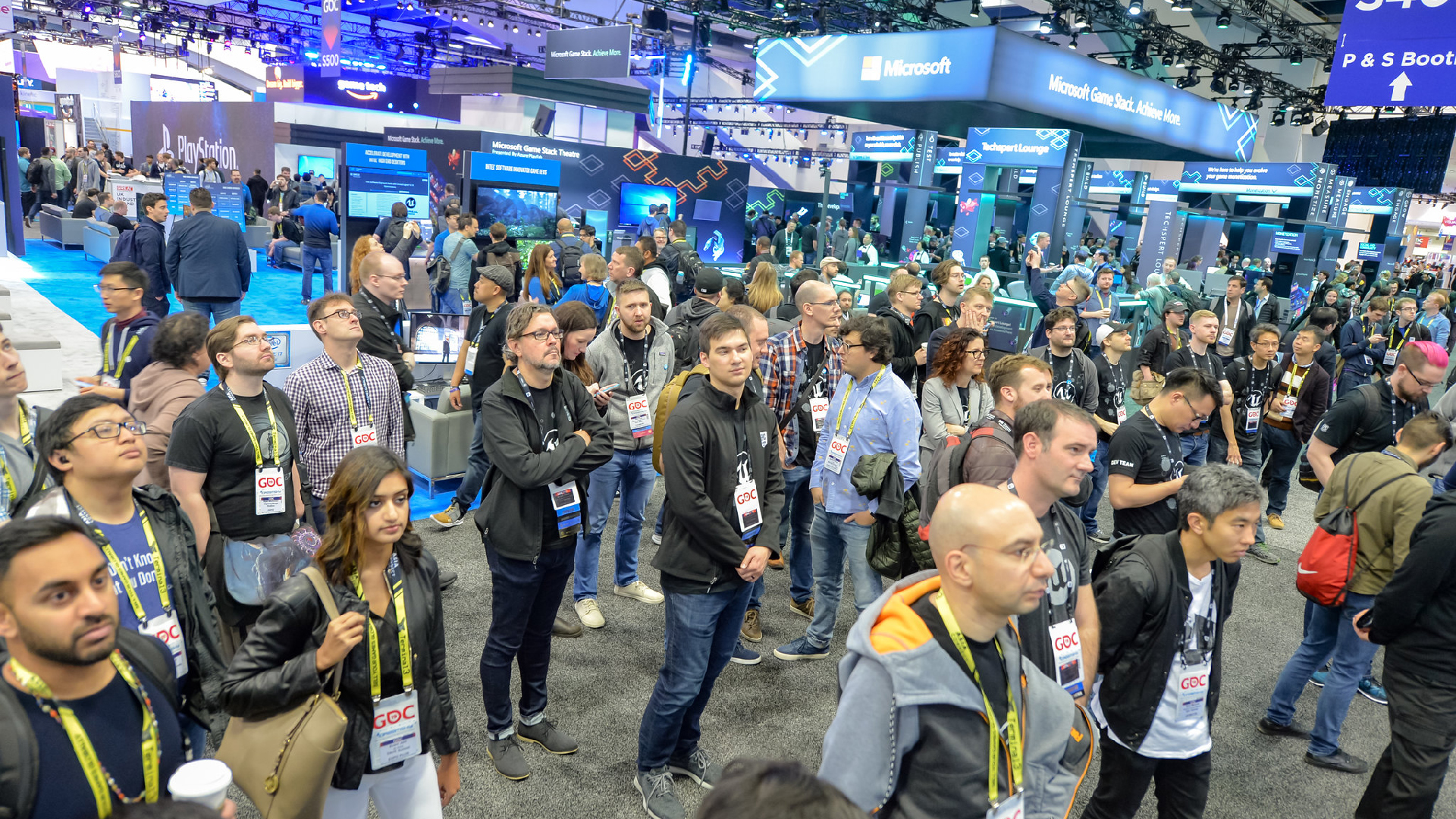
"I think people may underestimate the amount of stress that puts on a small studio," he says. "That literally we share everything with our team, you know. I don't know what we can do about losing access to publishers at this really, really important time when it was all planned in advance."
Drain isn't the only one feeling helpless. Heaven's Vault and 80 Days creator Inkle Studios was going to be giving a presentation and had plans to announce its new game, hoping to capitalize on the close proximity of international journalists to build some initial buzz. "As UK developers, we don’t get much face to face time with US [or] worldwide press, which is particularly important for us," says Jon Ingold, Inkle Studios' narrative director.
In addition to the new game, Inkle Studios was also planning to use GDC to host its first-ever community event for its narrative game engine, and Heaven's Vault was nominated for an Independent Games Festival award. It only made sense to go all-in and pay for an exhibitor booth so the small studio would have a presence on GDC's show floor. "With all that gone—and flight prices money with it—there’s a real sense of, what do we do now?" Ingold tells me. "Like a lot of indie studios we need other ways to connect, but it’s hard to see what they might be."
Similar to Drain, Ingold estimates the studio lost several thousand dollars, but, says the real loss is all the opportunities GDC typically provides. It's a problem echoed by both Chella Ramanan, who is based out of the Sweden and had plans to use GDC to build interest in her upcoming games. "It was also a great opportunity for Before I Forget," Ramanan says. "It's right before the launch of the game and we haven't had any US exposure yet, so the aim was to hopefully talk to some of the press there."
"GDC acts as a kind of centre-point for visibility," Ingold explains. "You can get multiple stories out about your new [project] at the same time and get some kind of impact. Without it, it's very hard to penetrate above the general noise."
Individual developers and those from outside of North America and Europe are especially vulnerable to the fallout of GDC's cancellation. Felipe Vega is a 21-year-old developer from Costa Rica that has dreamed of attending GDC since he first started making games in high school. This year, he won free GDC admission from a local game development association. He planned to use the trip to jumpstart his development career and build valuable contacts. "My mother started working extra shifts to pay for the travel to San Francisco," Vega explains. "When GDC was postponed, I was very upset, not only because I was excited to go to but because my mother's hard work had gone to waste."
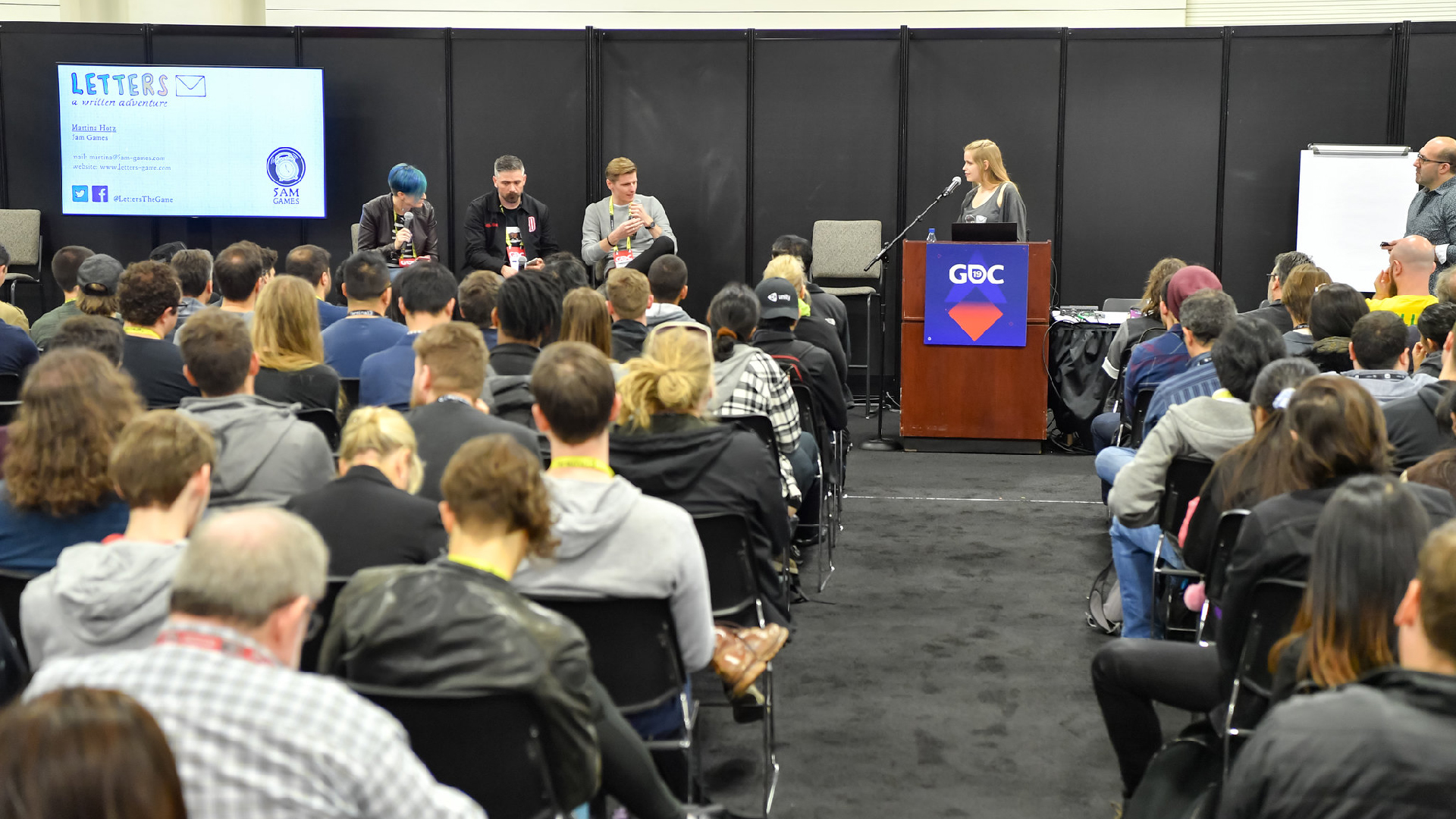
I literally watched money fall out of my hands like quicksand over the past 36 hours.
Nika Nour
The IGDA Foundation is a charity with programs that encourage diversity and inclusiveness in game development. One of their biggest initiatives is the IGDA Scholars program that each year gives student developers from around the world the chance to attend GDC for free, meeting with veteran game developers for one-on-one mentoring and tours of local game studios.
Nika Nour, the IGDA Foundation's executive director, says that because of GDC's unexpected cancellation her team is currently in the process of trying to refund over 55 international flights they had book for scholarship winners. Most of them, Nika suspects, won't be refundable. "I literally watched money fall out of my hands like quicksand over the past 36 hours," she says. "There's so much uncertainty."
For a charity like the IGDA Foundation, GDC plays a critical opportunity to attract new sponsors and secure funding that will keep programs like IGDA Scholars going year after year. "It's such a shame because between our fundraising dinners at GDC and our programs and then our fundraising events, GDC is kind of the bedrock of our efforts," Nour says. "We want to make sure that we exist to support people, and our entire team of volunteers are so, so disappointed. They worked so hard. It's tough."
Nour says her team is so busy trying to mitigate the damage that they don't yet know just how much money they lost this week, but she says it could possibly reach $100,000 or more. "I'm not scared," Nour says. "What we have to do is just triple down and work 10 times harder throughout the rest of the year, but we have to make sure that our work and our efforts are also helping people."
Rallying to help
If there's one upside to all of this, it's that everyone I've spoken to says they're encouraged to see how the industry has rallied to support those most affected by GDC's sudden cancellation. Drain tells me that publishers his team was scheduled to meet have reached out to set up online appointments in lieu of meeting in person, and Nour says some of the IGDA Foundation's sponsors have already confirmed their support ahead of when GDC was supposed to happen.
Though GDC is no longer officially happening, its community is doing what it can to pick up the pieces. Both altGDC and notGDC are grassroots conferences that have sprung up to help replace the educational portion of GDC's programming with special presentations and panels hosted by a variety of developers. While AltGDC is a physical event happening in San Francisco and notGDC is primarily online, both are free to attend.
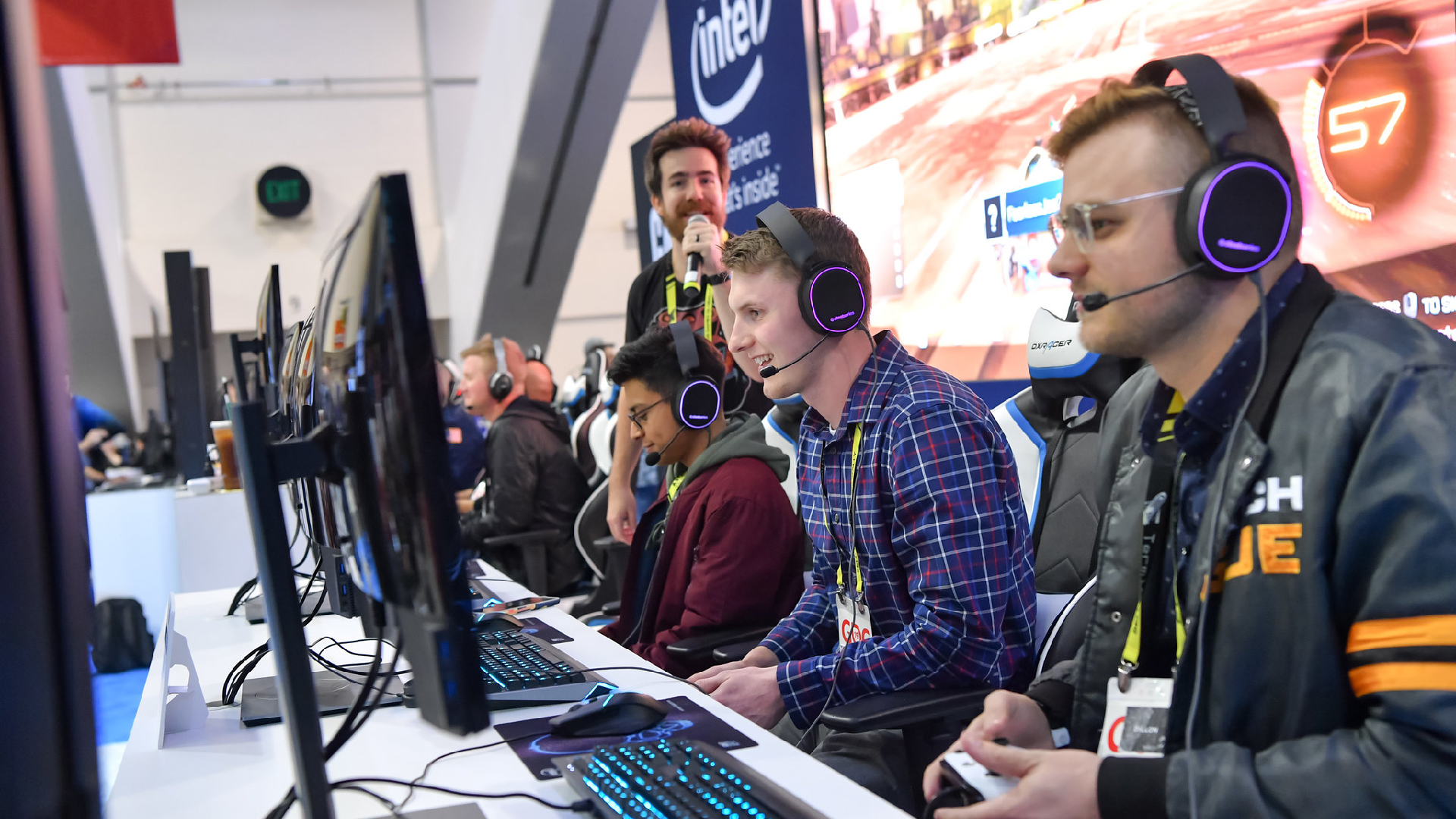
Seeing the solidarity of the independent games community in the games industry as a whole has been the silver lining of a really gloomy, gloomy cloud of terrible news.
For indie developers like Drain, Ramanan, Ingold that are struggling to recoup their lost investment, there's the GDC Relief Fund. Originally started by Wings Interactive, a fund for marginalized developers, the charity quickly gained traction when prominent indie companies like Raw Fury and 11bit Studios joined as sponsors. The idea is simple: Indie developers affected by GDC's sudden cancellation can apply to receive compensation based on their non-refundable expenses.
Cassia Curran is the head of business at Wings Interactive and, for her, the situation is personal. Her uncle is a doctor in Wuhan, the city where Covid-19 first was diagnosed. He contracted the virus shortly after the outbreak and is currently in quarantine while other members of her family are in lockdown, unable to leave their homes.
Curran tells me the fund only came together on the Friday morning GDC was cancelled. Word quickly spread as more partners joined, raising $42,000 in relief funds that first day. When I spoke to Curran yesterday, she said that number was now over $76,000 and climbing. "Seeing the solidarity of the independent games community in the games industry as a whole has been the silver lining of a really gloomy, gloomy cloud of terrible news," Curran says.
Though the application process just opened on Monday, Curran tells me they've already been overwhelmed by the number of developers seeking relief. "There's some really heartbreaking stories," she tells me. "A lot of developers have scrimped on food so they can go to GDC, which is incredibly expensive. They invested all that money that they saved up for the opportunity to get financing for their games, and now they've lost that opportunity."
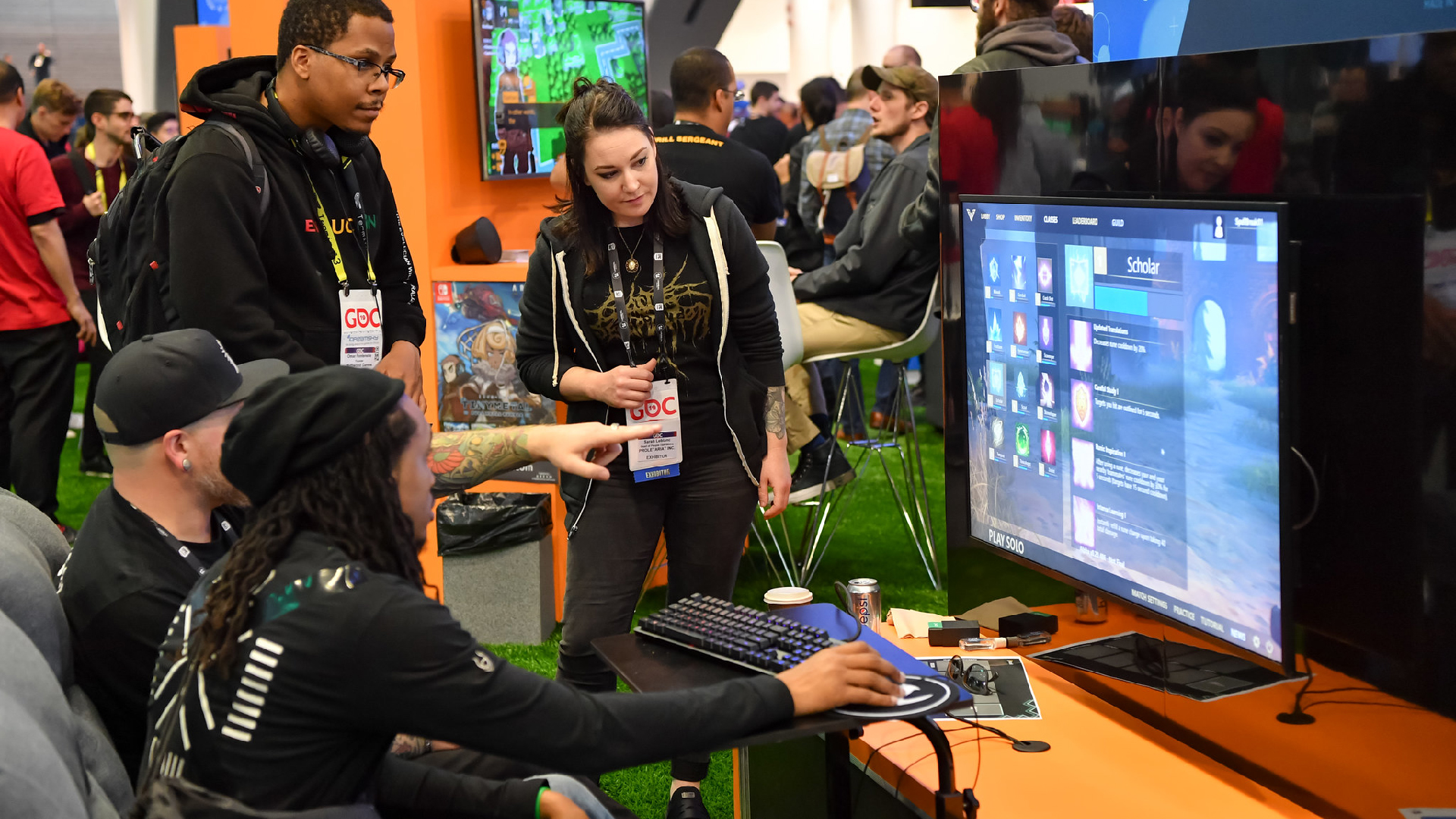
Curran says that it might take some time before developers see relief because the situation is "unprecedented" and sponsors are still figuring out how to best organize and dispense funding. But it's a start.
With so much happening right now, it's hard to look beyond the immediate aftereffects of GDC's cancellation at the long-term damage. GDC's organizers maintain the show will be postponed until this summer, but with a Covid-19 outbreak looming and attendees already struggling to recoup their losses, the outlook isn't promising. Of the developers I spoke with, all agreed that cancelling the show to prioritize the health and safety of attendees was the right choice, but some expressed concern of how this might affect future GDCs.
Over its two-decade run, Game Developers Conference has become an integral part of the global videogame industry. As Curran explains, "The plan is, as ever, to have a whole week of back to back meetings with everyone at GDC because everyone is at GDC." But it's now easy to see the downside of pinning so much influence and opportunity on just one event held in one of the world's most expensive cities—not to mention how coronavirus might affect other industry events like E3 or Gamescom. When it comes to measuring the industry-wide fallout of GDC's cancellation, there are plenty of questions and few answers. That's little consolation for the indie developers who risk so much to attend.
With over 7 years of experience with in-depth feature reporting, Steven's mission is to chronicle the fascinating ways that games intersect our lives. Whether it's colossal in-game wars in an MMO, or long-haul truckers who turn to games to protect them from the loneliness of the open road, Steven tries to unearth PC gaming's greatest untold stories. His love of PC gaming started extremely early. Without money to spend, he spent an entire day watching the progress bar on a 25mb download of the Heroes of Might and Magic 2 demo that he then played for at least a hundred hours. It was a good demo.


